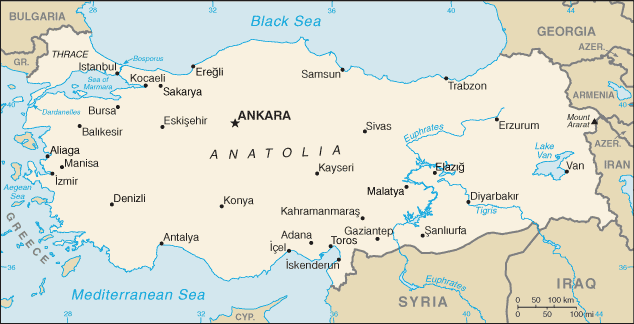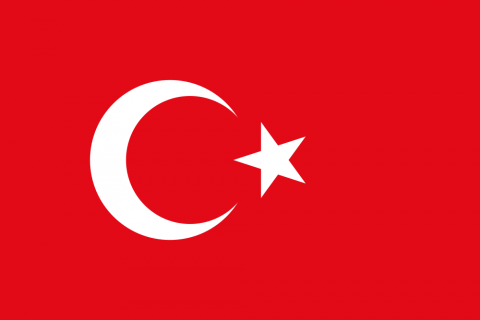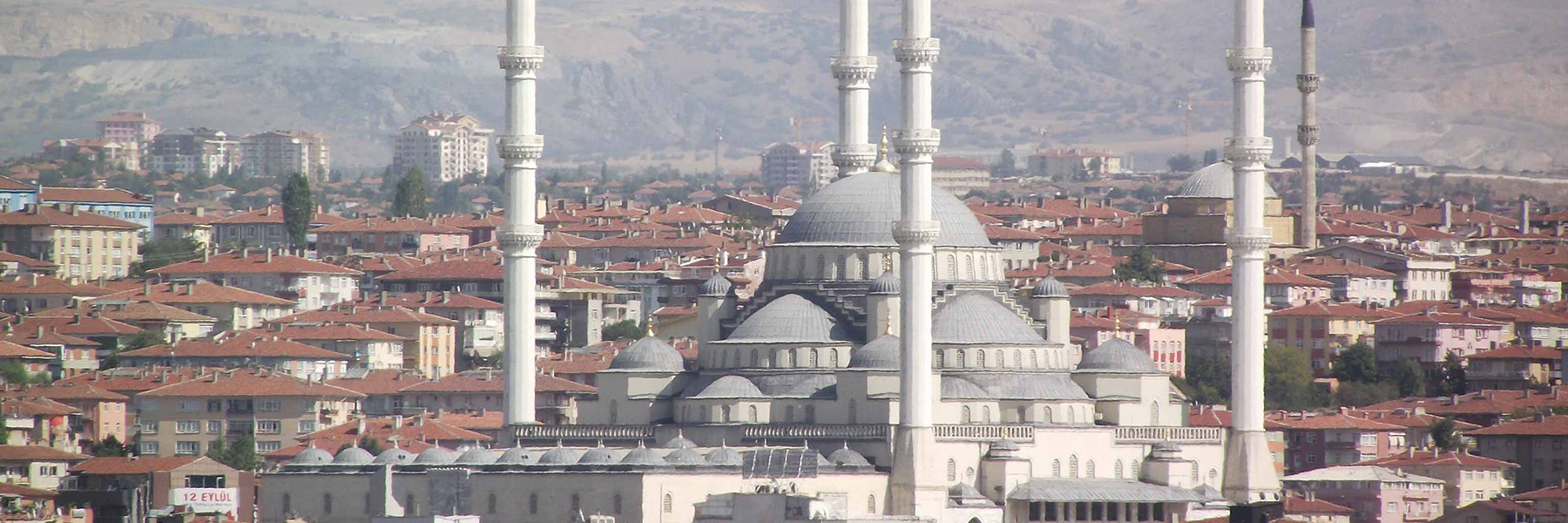Republic of Turkey


Turkey
Capital: Ankara
Population: 80,694,485
Languages: Turkish, Kurdish
The area of the modern Turkey was once the center of the Ottoman Empire, which, at its height, controlled much of the Middle East, North Africa, and Southeastern Europe, encompassing a variety of languages, ethnicities, and religions. Following the defeat of the Ottomans in World War I, the modern nation-state of Turkey was founded in 1923 by national hero Mustafa Kemal, who was later honored with the title Ataturk or “Father of the Turks.” Under his authoritarian leadership, the country adopted wide-ranging social, legal, and political reforms, establishing Turkey as a secular nation. After a period of one-party rule, an experiment with multi-party politics led to the 1950 election victory of the Democratic Party and the peaceful transfer of power. Since then, Turkish political parties have multiplied, but democracy has been fractured by periods of instability and intermittent military coups (1960, 1971, 1980), which, in each case, eventually resulted in a return of political power to civilians. In 1997, the military again helped engineer the ouster ̶ popularly dubbed a “post-modern coup” of the then Islamic-oriented government.
In 1974, Turkey intervened militarily on Cyprus to prevent a Greek takeover of the island and has since acted as patron state to the “Turkish Republic of Northern Cyprus,” which only Turkey recognizes. A separatist insurgency began in 1984 by the Kurdistan Workers’ Party (PKK) ̶ now known as the People’s Congress of Kurdistan or Kongra-Gel (KGK) ̶ has dominated the Turkish military’s attention and claimed more than 30,000 lives. After the capture of the group’s leader in 1999, the insurgents largely withdrew from Turkey mainly to northern Iraq. In 2004, KGK announced an end to its ceasefire and attacks attributed to the KGK increased. Turkey joined the UN in 1945 and in 1952 it became a member of NATO. In 1964, Turkey became an associate member of the European Community. Over the past decade, it has undertaken many reforms to strengthen its democracy and economy; it began accession membership talks with the European Union in 2005. Recently, Tayyip Erdoğan, the Prime Minister since 2003, and his religious and socially conservative Justice and Development Party (JDP) has been the source of controversy over the increasing role of Islam in public and government life in contrast to the long history of secularism established by Ataturk.


